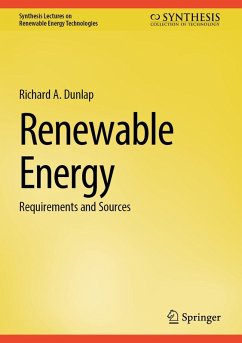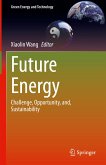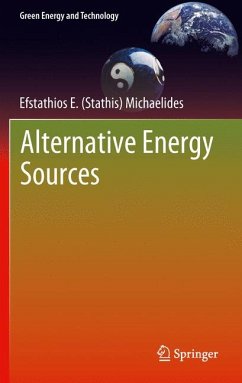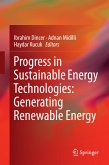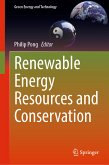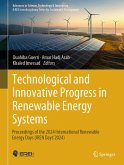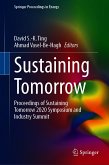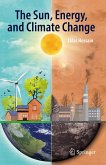The transition to renewable energy is essential for ensuring energy supply, and to mitigate environmental effects of fossil fuels, particularly climate change. However, because renewable energy resources do not provide a constant supply of energy and they are not sufficiently portable for many applications, the development of energy storage methods is necessary. The book reviews historical and current energy use, as well as provides predictions for future energy demands. The main sources of renewable energy are introduced including hydroelectric, wind, solar, geothermal, and biofuels, along with an analysis of the need for energy storage.
In addition, this book:
- Explains the importance of renewable energy in ensuring a sufficient energy supply, and reducing the impact of climate change
- Introduces available renewable energy sources including hydroelectric, wind, solar, and geothermal energy, and biofuels
- Reviews historical and current energy use, and provides predictions for future energy demands
Dieser Download kann aus rechtlichen Gründen nur mit Rechnungsadresse in A, B, BG, CY, CZ, D, DK, EW, E, FIN, F, GR, HR, H, IRL, I, LT, L, LR, M, NL, PL, P, R, S, SLO, SK ausgeliefert werden.

